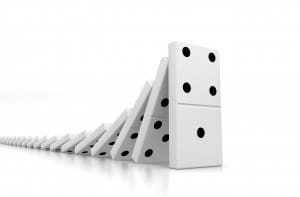
According to the National Institute of Mental Health (NIMH), a 2007 study shows that the number of visits by adults to a doctor’s office that resulted in a diagnosis of Bipolar Disorder has nearly doubled over the last decade. The study also describes an increase in diagnosis 40 times the previous number for children and adolescents.
Although the reason behind these swelling figures is unknown, the study does note that medication prescription patterns for the two groups were “similar.” If the proper use of prescribed drugs could be looked at as a potential contributing factor in the diagnosis of Bipolar Disorder, might it follow, then, that the abuse of non-prescribed drugs could also be suspect in the same diagnosis?
For More Information About Our Mental Health & Addiction Treatment Programs
Call Us At: (310) 455-5258
Causes of Bipolar Disorder
It’s reported that the cause of Bipolar Disorder is likely not due to a single cause, but a combination of factors:
- Biologic
- Genetic
- Environmental
These factors combine to make us who we are, each playing a part in the make-up of our physical and emotional selves. Drug abuse would fall into the category of “environmental factors.”
It’s not news that the abuse of drugs is harmful on countless levels. The word “abuse” itself would apply to any substance, whether it is legal, illegal, healthful, or known to be harmful. You can even overdose on water, believe it or not.
If you suspect you are experiencing symptoms of Bipolar Disorder, a Bipolar Disorder treatment center can be a resource in helping you get back to being the healthiest person you can be.
Symptoms of Bipolar Disorder
Symptoms of Bipolar Disorder cover a wide range of unusually intense emotions. An intense and lasting experience of joy might be called a manic episode, whereas a long period of worry and feeling lost might be called a depressive episode.
Symptoms include:
Manic:
- Jumpy, easily irritated
- Joyful, overly outgoing
- Talking extremely fast
- Increasing goal-oriented activities
- Sleeping very little
Depressive:
- Feeling lethargic
- Decreased memory, lack of concentration
- Loss of interest in activities once enjoyed
- Long period of feeling lost or empty
- Suicidal thoughts
Experiencing these types of extreme and confusing symptoms could certainly lead you to seek substances as a coping mechanism. The trouble with self-medicating is that the user often inadvertently becomes an abuser as more and more of the substance is needed to cope.
A drug rehab center that combines the support of a Bipolar Disorder treatment center can be a life-saving resource in the diagnosis and treatment of Bipolar Disorder.
By that same token, taking control of a substance abuse issue with the help of a drug rehab center could be a preventative measure, eliminating at least one element considering the speculation that the abuse of drugs, as an environmental factor, could contribute to Bipolar Disorder.
Contributed by Jenni Prange Boran
